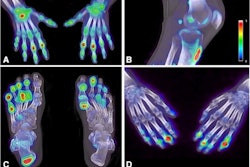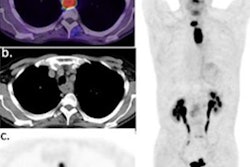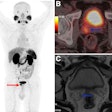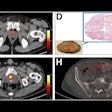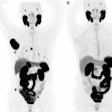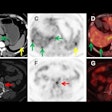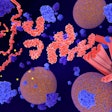Tuesday, November 29 | 1:30 p.m.-2:00 p.m. | T6-STCE-4 | Learning Center Theater
In this molecular imaging scientific session, researchers will make the case that F-18 fluorodopa (FDOPA) should be the radiotracer of choice among four evaluated for diagnosing adrenal gland tumors related to multiple endocrine neoplasia type 2 (MEN 2).MEN 2 is a rare hereditary cancer syndrome associated primarily with tumors of the adrenal glands, or pheochromocytomas (PHEOs). Biopsies and genetic tests are used to diagnose the disease, with a less invasive molecular imaging approach yet to be established.
Dr. Abhishek Jha and colleagues from the U.S. National Institutes of Health evaluated the use of F-18 FDOPA-PET for diagnosing these tumors compared with PET or PET/CT with the radiotracers Ga-68 DOTATATE, F-18 fluorodopamine (FDA), or F-18 FDG. They enrolled 19 patients who underwent contrast-enhanced CT or MRI (conventional imaging) as well as PET using the different radiotracers between 2008 and 2021.
There were 10 women in the study, and the mean age of patients was 36. The mean duration between scans was less than a month. The scans were evaluated by a nuclear medicine physician or radiologist, with histopathology as the reference standard.
According to the results, F-18 FDOPA showed the highest detection rate (83.3%) followed by Ga-68 DOTATATE (80%), F-18 FDA (50%), and F-18 FDG (30.4%), with a significant difference in detection rates between F-18 FDG and the others, according to the researchers.
"This study is important as it supports that F-18 FDOPA should be used for diagnosis of MEN2A-related PHEO and is a radiotracer of choice in this syndrome," Jha noted.






